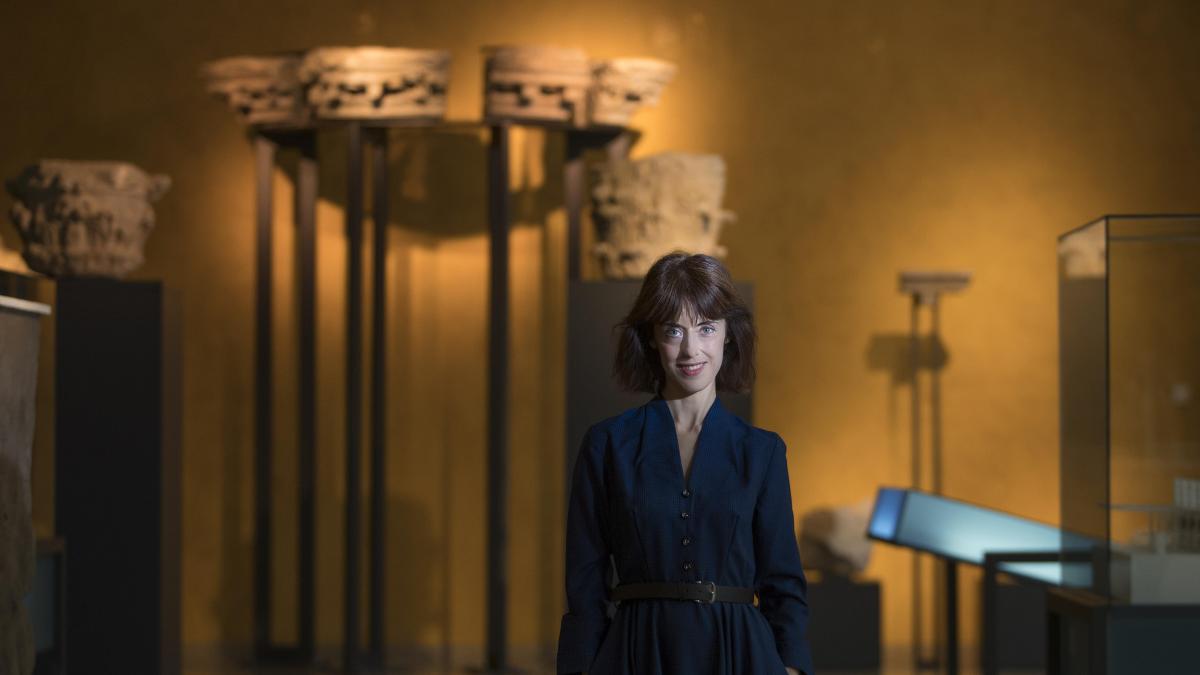The lyrics, as well as the stories, are always there. In good times and in bad. For Irene Vallejo, literature is much more than a way of life. It is his passion, his way of being in this world. His latest work, ‘El infinito en un junco’, has consolidated him among the elite of Hispanic letters, filling his house with great recognitions. The last and most important: the National Essay Award.
Your 2020, this year so strange and uncertain for society, has been a time full of successes and literary awards for you. How have you lived it?
I have lived it in a whirlwind of contradictory feelings, afflicted by the pandemic, impacted by the suffering of many people and, at the same time, grateful and moved by the affection of so many people who have trusted this little reed. Perhaps the most exciting thing has been to feel that words, books and literature still retain that amazing ability to relieve anguish, transmitting calm, peace and a certain hope in times of storm.
How do you live day to day with the sudden massive recognition?
I think it would be appropriate to reserve this massive recognition for health personnel and care professionals. In these moments, when many people are experiencing very difficult situations, it is time to think collectively. Every day I ask myself what I can contribute from my small sphere, the profession of dreaming and thinking, to try to mitigate –even if it is a wisp– of fears, loneliness or uncertainties.
Personally, what do you expect from 2021?
I hope, above all, that we overcome this storm and come to fruition together, that we recover the hugs without fear, the looks without a mask, the open smiles. In particular, the new year will mean the launch of the international book campaign. I would be very excited to travel to meet my foreign editors, translators, meet readers from other countries, other languages and cultures, live that experience intensely, learn, grow with it.
What is your recipe for overcoming the current complex situation?
“We are born to collaborate,” wrote the emperor and philosopher Marcus Aurelius. If you can talk about recipes, I would mention something apparently as simple as sympathy. I don’t mean just kindness, but the original Greek sense, being able to understand the suffering of others.
Do you see any major short-term change in your industry?
Surveys of reading habits reveal that during confinement many people have discovered or found books. When loneliness, sadness or anxiety assaulted us, these coffers of words have accompanied us and have offered us a place of calm, emotion, hope.
Is understanding our past the best formula to face the future?
If we revive in our world those who preceded us, we learn from their decisions, their doubts and their reflections. The memory of their lives gives us the opportunity not to repeat old mistakes and, instead, to recover valuable experiences. Even so, I like to emphasize that we cannot fall into oblivion, but neither into a false nostalgia that longs for past glories. We need to know the past in its complexities, chiaroscuro and uncomfortable truths, not as an idealized and perfect time that never existed.
(This interview is part of the book prepared by the staff of HERALDO DE ARAGÓN Perspectivas 2021 as the icing on the cake for its 125th anniversary. 60 people reflect on the new year, and which includes an exhaustive analysis with in-depth articles, a survey and a block of studies socioeconomic)
– .


